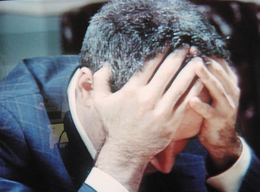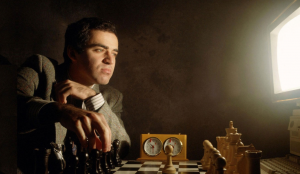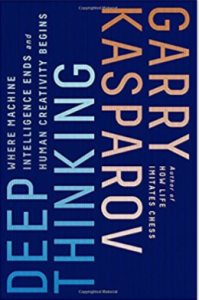
Power of artificial intelligence


Artificial Intelligence could beat human creativity, and in future years several people are bound to spend sleepless nights thinking about, what happens when machines make human creativity obsolete. It was the dawn of a new era in artificial intelligence where a machine capable of beating the human at this most cerebral game.
Garry Kasparov, one of the strongest chess players of this century, who carried the “banner for mankind” in his epic clashes with chess machines in 1997 met with his Waterloo when he was defeated by Deep Blue computer program created by IBM in the glare of global attention.
It was the first time the computer had won a match against a reigning world champion and Grand Master in a game that has for centuries been a forte for human intelligence.
The history of chess goes back almost 1500 years, as the game originated in northern India during the Gupta Empire in the 6th century AD, known as chaturanga and spread to Persia, when the Arabs conquered Persia, chess was taken by the Muslim world and later through the Moorish conquest of Spain spread to southern Europe.
Kasparov reveals and extrapolates his experience into an optimistic perspective and his astonishing side of the story for the first time in-depth, about how it felt to strategise against an implacable untiring opponent with the whole world watching, and recalls the history of the machine intelligence through the microcosm of chess, considered by scientific pioneers to be key to unlocking the secrets of human and machine cognition.
Kasparov’s gripping story of raw emotion in New York which he fully recounts for the first time in Deep Thinking. Kasparov is emotionally and morally drained by his defeat by a computer. During the match, Kasparov appears to have run through four stages of the Kubler-Ross grief cycle, moving at rapid speed from denial, anger and depression. The book published after 20 years after the match, reflects Kasparov’s final reckoning with the fifth stage of grief acceptance. Kasparov is notorious and domineering and brutal chess players in his prime and his opponents know this only too well. He played over 2,400 serious games from the age of 12, he just lost 170, in his 15-year reign as World champion from 1985 to 2000. Of course, Deep Blue is not intimidated by Kasparov’s personality, record or dominance. The more victories he recorded. He generated more data to defeat himself. Having lost to Kasparov once before, the IBM team was determined to prove the superiority of its technology and sought to gain a distinct edge over its opponent.
Deep Thinking: Where Artificial intelligence Ends and Human creativity Begins by Garry Kasparov, John Murray £20/ Public Affairs $28, 304 pages

